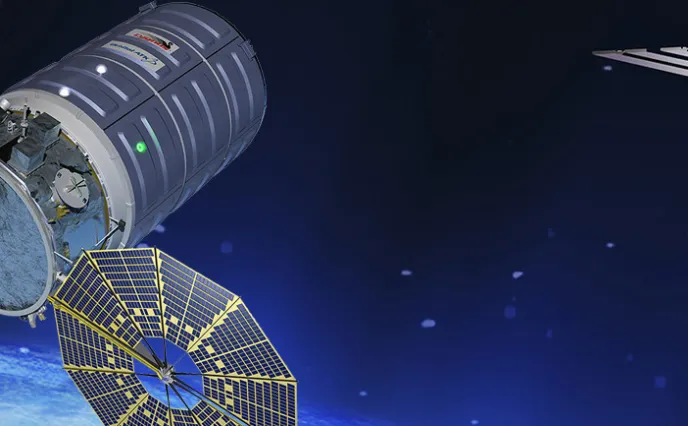Lancement réussi du vaisseau Cygnus vers la Station Spatiale Internationale, avec à son bord le module cargo pressurisé réalisé par Thales Alenia Space

Lancement réussi du vaisseau Cygnus vers la Station Spatiale Internationale, avec à son bord le module cargo pressurisé réalisé par Thales Alenia Space
Turin, March 23, 2016 – The Cygnus cargo carrier for the International Space Station (ISS) was successfully launched today from the Kennedy Space Center in Florida on an Atlas V rocket. The Cygnus spacecraft comprises two modules: the Service Module and the Pressurized Cargo Module (PCM), developed and built by Thales Alenia Space for Orbital ATK (NYSE: OA).
The PCM on this mission carried 3,519 kg (7,742 lb) of cargo, including crew supplies, spare parts, and scientific equipment. As in the previous mission in Dec. 2015, this PCM was able to carry a large and heavy payload to the ISS, thanks to a lighter and more efficient system for storing and attaching the cargo. The new design accommodates irregularly shaped bags and contents.
Once Cygnus reaches the ISS, it will be captured by the station’s robotic arm and berthed to the Nadir port on Node 1. After it completes its mission, the Cygnus spacecraft will be detached from Node 1 and plunge back into the atmosphere, burning up in the process – and taking with it waste from the station that weighs about the same as its original cargo load.
The PCM on this mission is carrying the Spacecraft Fire Safety Experiment, or Saffire, developed by NASA to study flammability and fire propagation under zero gravity conditions with the purpose to improve crew safety. After Cygnus separates from the Station, and is in free-flight at a safe distance, a material sample measuring about 90 x 40 cm (36 x 16 in) will be ignited and combustion propagation monitored by video and other sensors, with the data collected being sent down to Earth. Once all the data are downloaded, which will take a few days, the Cygnus vehicle will start its destructive atmospheric reentry.
The Cygnus PCM confirms Thales Alenia Space’s ability to meet specific mission needs, by maintaining the core structure and adapting its cargo accommodations.
Thales Alenia Space, a joint venture between Thales (67%) and Finmeccanica (33%), is a key European player in space telecommunications, navigation, Earth observation, exploration and orbital infrastructures. Thales Alenia Space and Telespazio form the two parent companies' “Space Alliance”, which offers a complete range of services and solutions. Because of its unrivaled expertise in dual (civil/military) missions, constellations, flexible payloads, altimetry, meteorology and high-resolution optical and radar instruments, Thales Alenia Space is the natural partner to countries that want to expand their space program. The company posted consolidated revenues of 2.1 billion euros in 2015, and has 7,500 employees in eight countries. www.thalesaleniaspace.com

